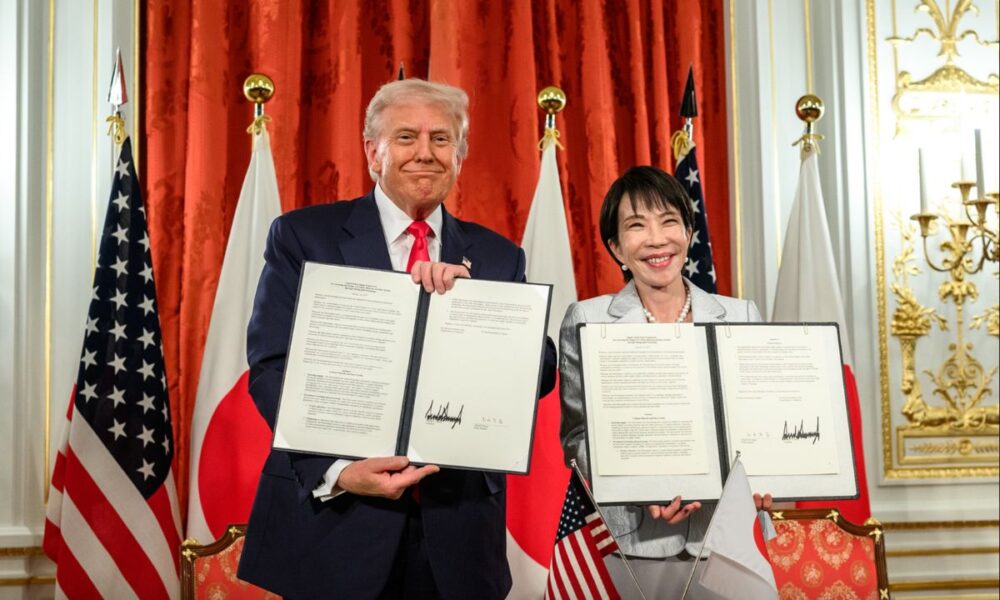President Donald Trump and Japanese Prime Minister Sanae Takaichi signed multiple agreements on Tuesday to deepen economic and technological ties, including commitments for up to $332 billion in Japanese investments in U.S. energy infrastructure.
The deals expand on a previous $550 billion Japanese investment pledge and cover critical minerals, shipbuilding, AI infrastructure, and energy exports.
Japanese firms pledged up to $75 billion for data center equipment and optical fiber cables.
Toyota agreed to export U.S.-made vehicles to Japan and open its distribution network to American automakers. Japan will accept U.S. safety-certified vehicles without additional testing.
Energy deals include Tokyo Gas and JERA signing letters of intent for liquefied natural gas from a proposed Alaska pipeline. Global Coal Sales secured a $100 million thermal coal contract.
JERA announced a $1.5 billion investment in Louisiana’s Haynesville Shale basin, bringing its total U.S. investments above $6 billion.
A separate technology cooperation memorandum signed on October 28 outlines collaboration in artificial intelligence, quantum computing, biotechnology, fusion energy, and space exploration. The nations will partner on high-performance computing, leading-edge semiconductors, and trusted 6G networks. They committed to “enrich the lives and livelihoods of citizens in both countries” through joint research.
The agreement establishes no legally binding obligations and can be terminated with 180 days’ notice.
U.S. Treasury Secretary Scott Bessent met Japanese Finance Minister Satsuki Katayama in Tokyo on Monday to discuss monetary policy and deregulation. Bessent expressed “strong confidence in the US-Japan alliance” and eagerness for “opportunities for positive engagement” with Katayama, according to a Treasury readout. He stressed “sound monetary policy formulation and communication in anchoring inflation expectations and preventing excess exchange rate volatility.”
A critical minerals framework signed on October 28 creates a rapid-response group to identify supply vulnerabilities and accelerate mineral delivery. Both countries plan financial support for mining and processing projects within six months, including grants, loans, and regulatory assistance. The non-binding pact addresses non-market policies and establishes high-standard marketplaces with transparent pricing.
An implementation agreement signed on Tuesday builds on July and September pacts, with leaders declaring a “NEW GOLDEN AGE” for the alliance. Trump and Takaichi instructed cabinet members to advance their vision.


